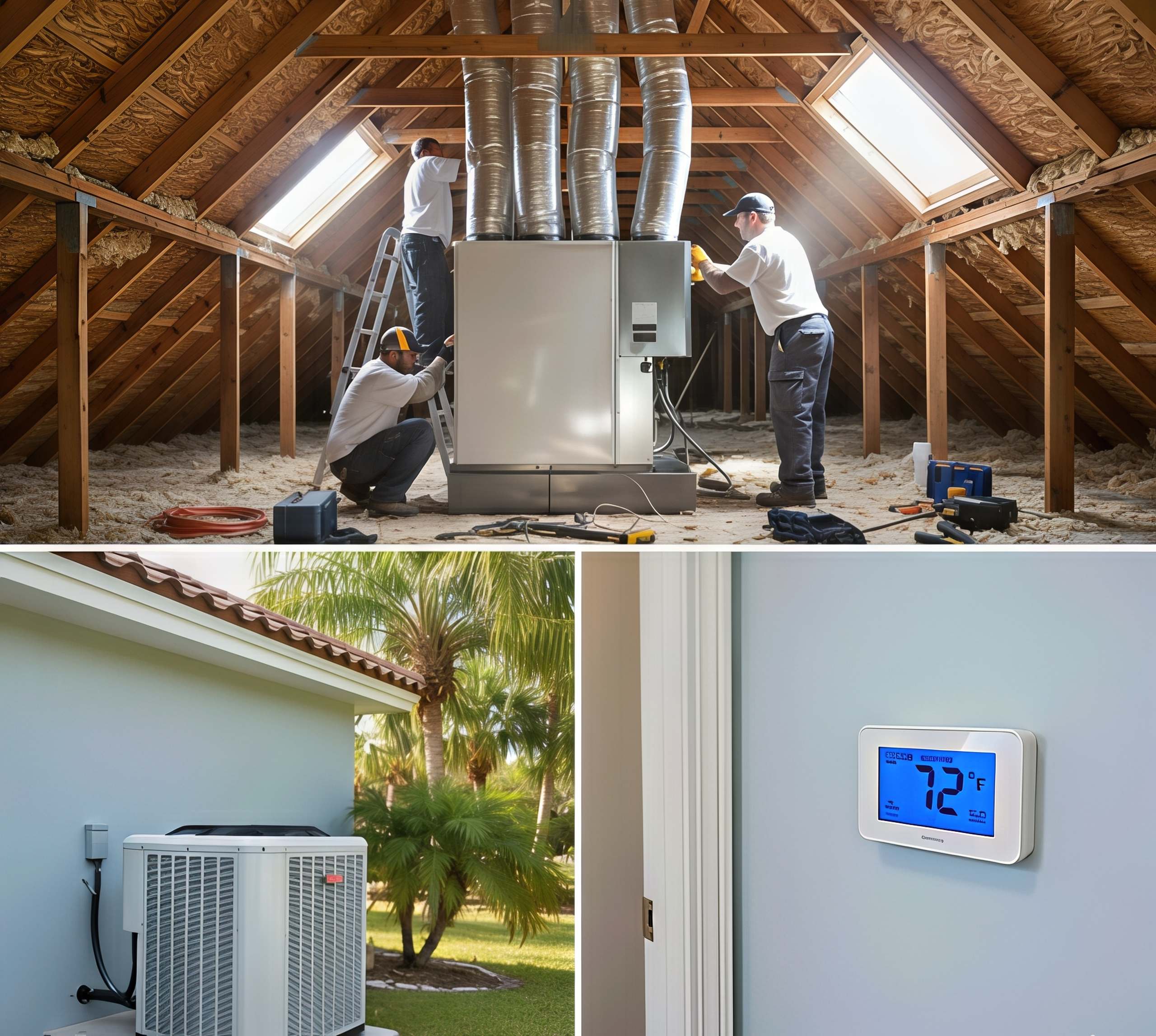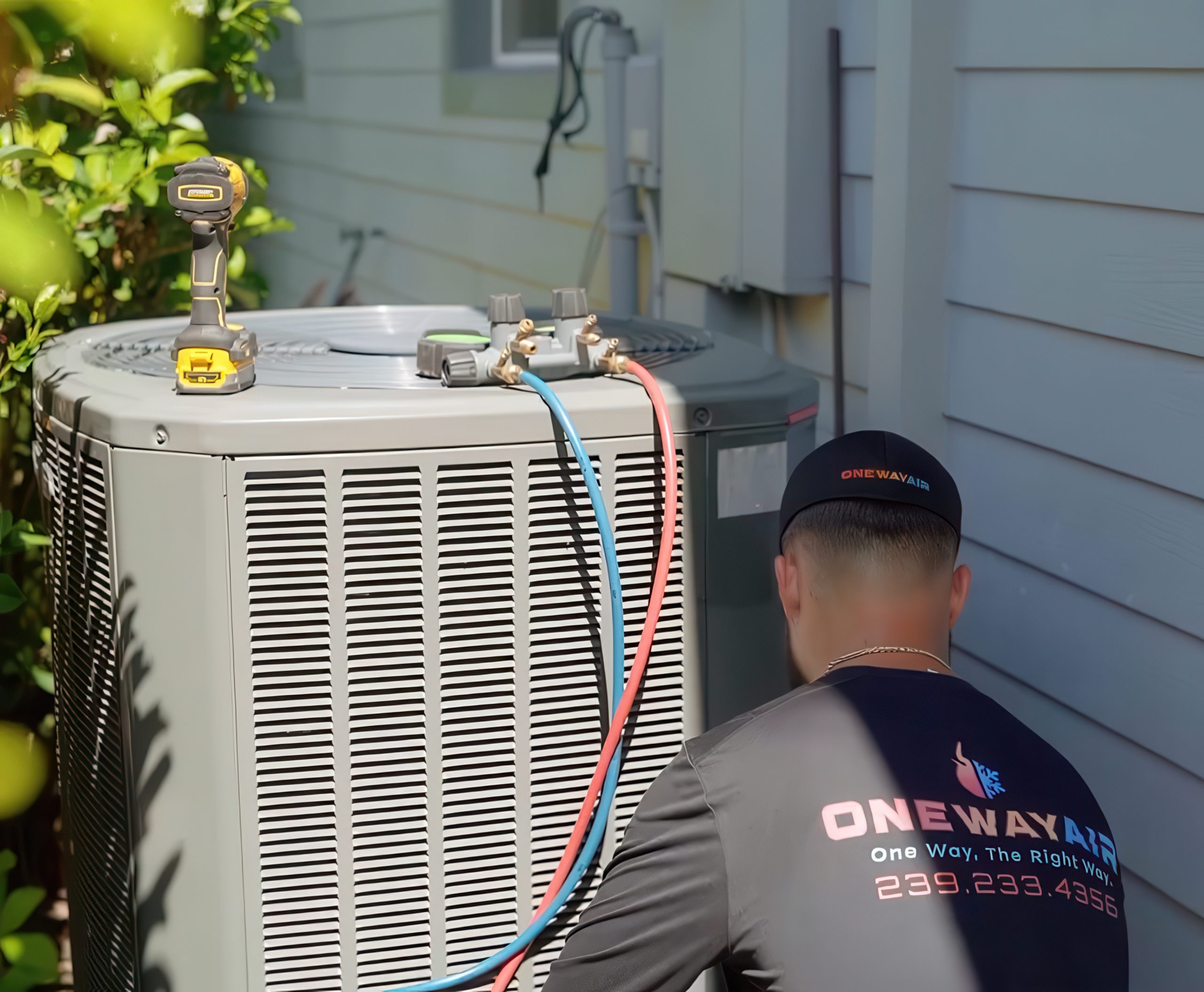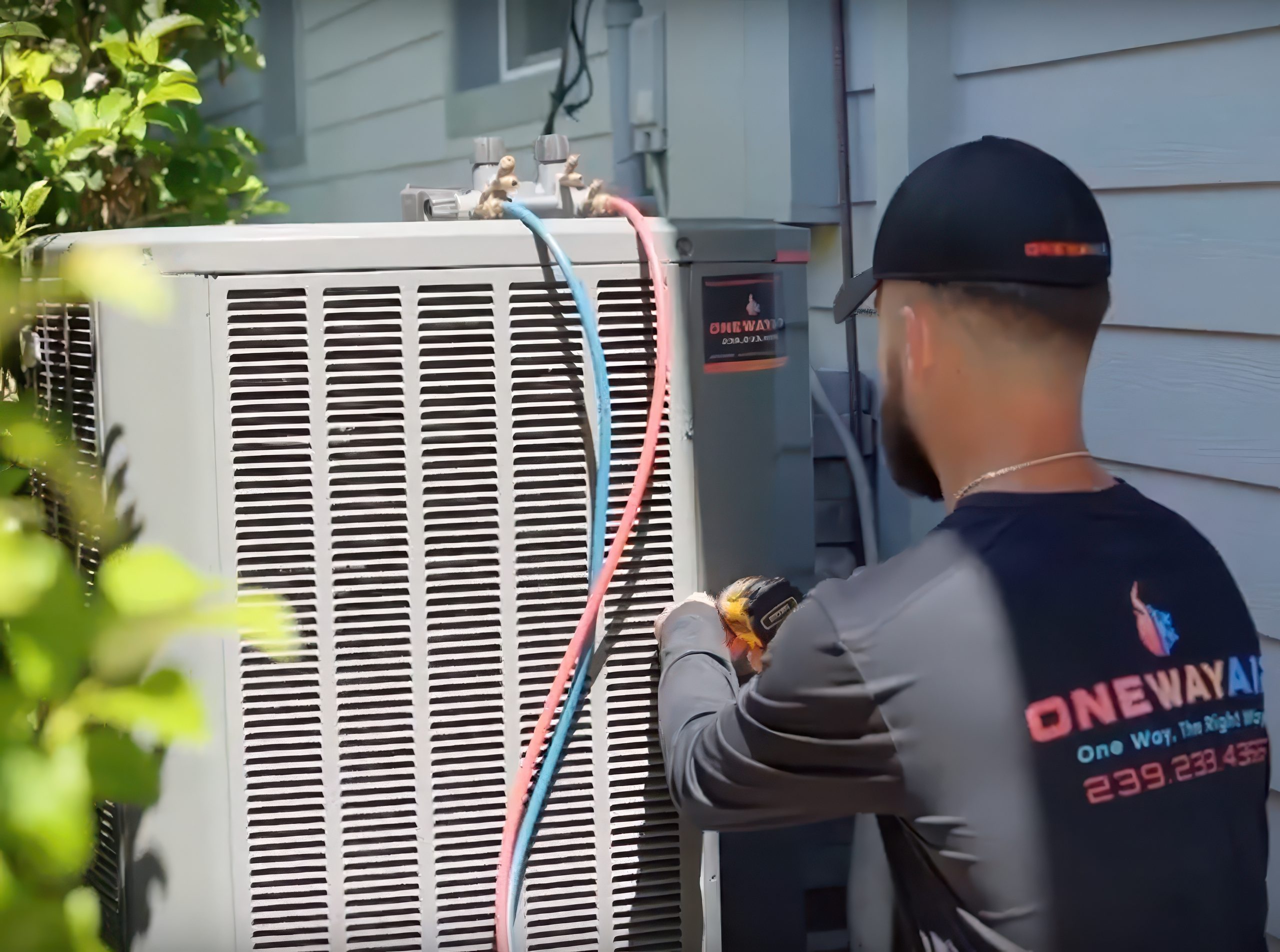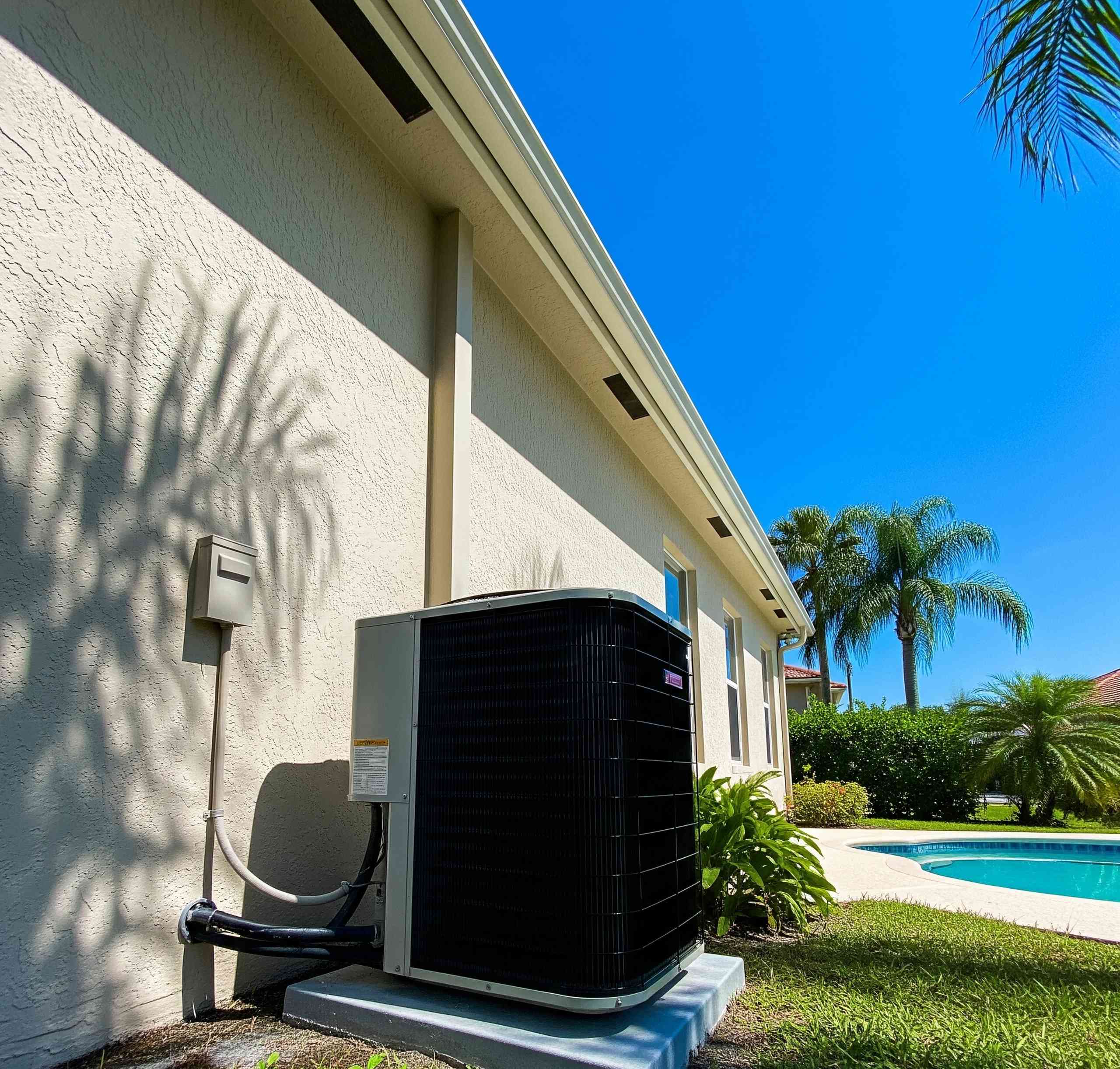AC refrigerant leaks are a health risk to families and a major source of greenhouse gas emissions. Failure to address leaks can lead to fines under the Clean Air Act.
AC leaks also mean that your cooling system is not working properly and it may need essential AC repairs to prevent further damage and shorten the life of your air conditioning unit.
Understanding how refrigerant smells, its role in AC systems, and how to handle it is essential when detecting issues early and maintaining a healthy home cooling system.
WHAT DOES REFRIGERANT SMELL LIKE?
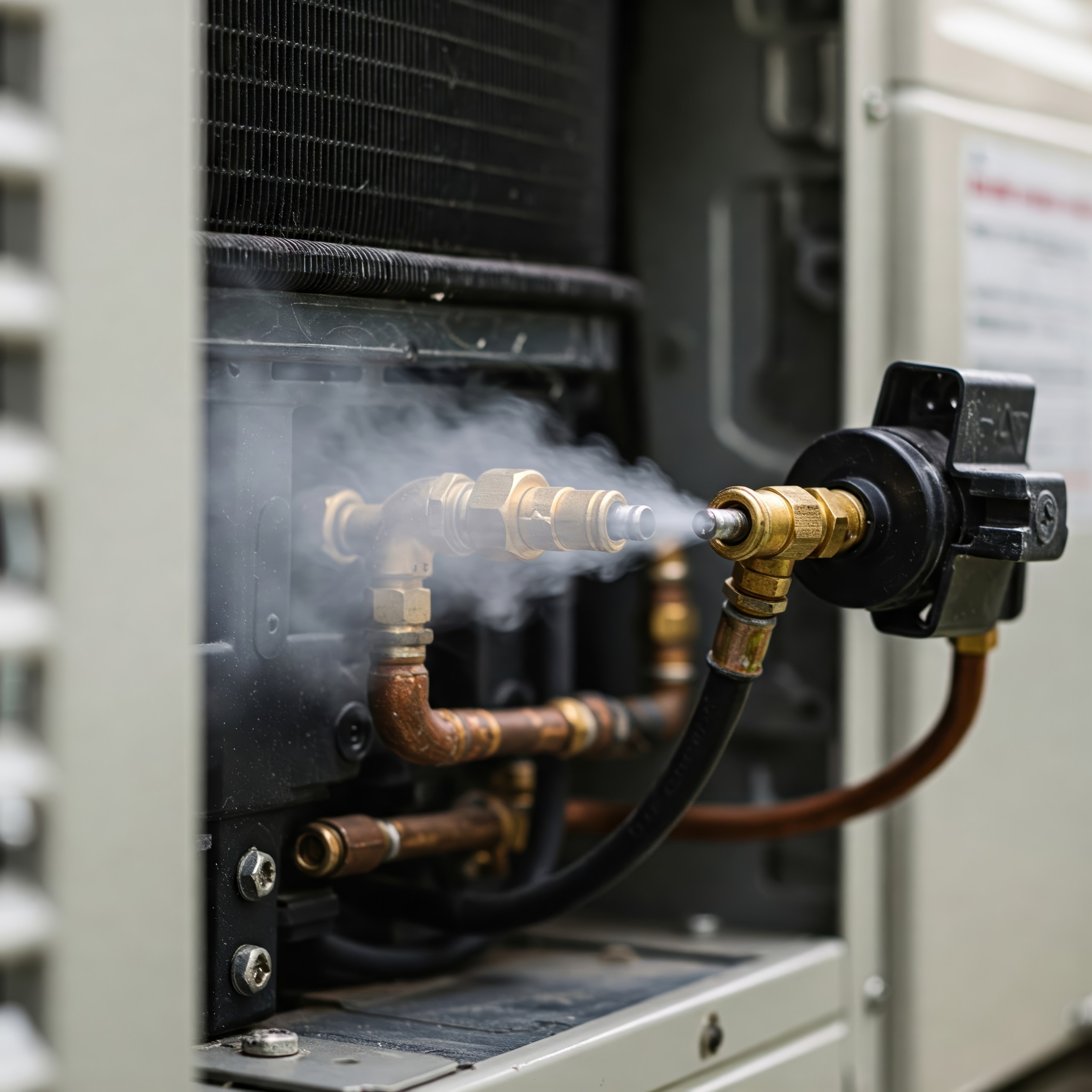
Most types of AC refrigerant are virtually odorless in small amounts, making them difficult to detect. While Puron (410-A) has no smell, another of the most common refrigerants in Florida, freon (R-22), is sometimes said to have a faint, sweetish odor like nail polish remover or chloroform.
Let’s delve deeper into AC refrigerants.
STAY COOL ALL YEAR ROUND WITH ONE WAY AIR…
The team at One Way Air installs, services, and repairs all types of air conditioning systems in Southwest Florida. Get in touch with us here for a quote or call 239-233-4356 in emergencies.
WHAT IS AC REFRIGERANT?
All modern home cooling systems use a combination of gas and electricity. The gas used is refrigerant, sometimes also called coolant, an essential part of the cooling system. However, the type of refrigerant used in AC units sold in Florida has changed over the years.
HVAC refrigerant should work invisibly within a “closed system” and most homeowners don’t need to even think about it. The refrigerant works within a complex system of heat exchange involving several key components all working together. The refrigerant has unique properties when pressurized that are essential for the AC cooling process.
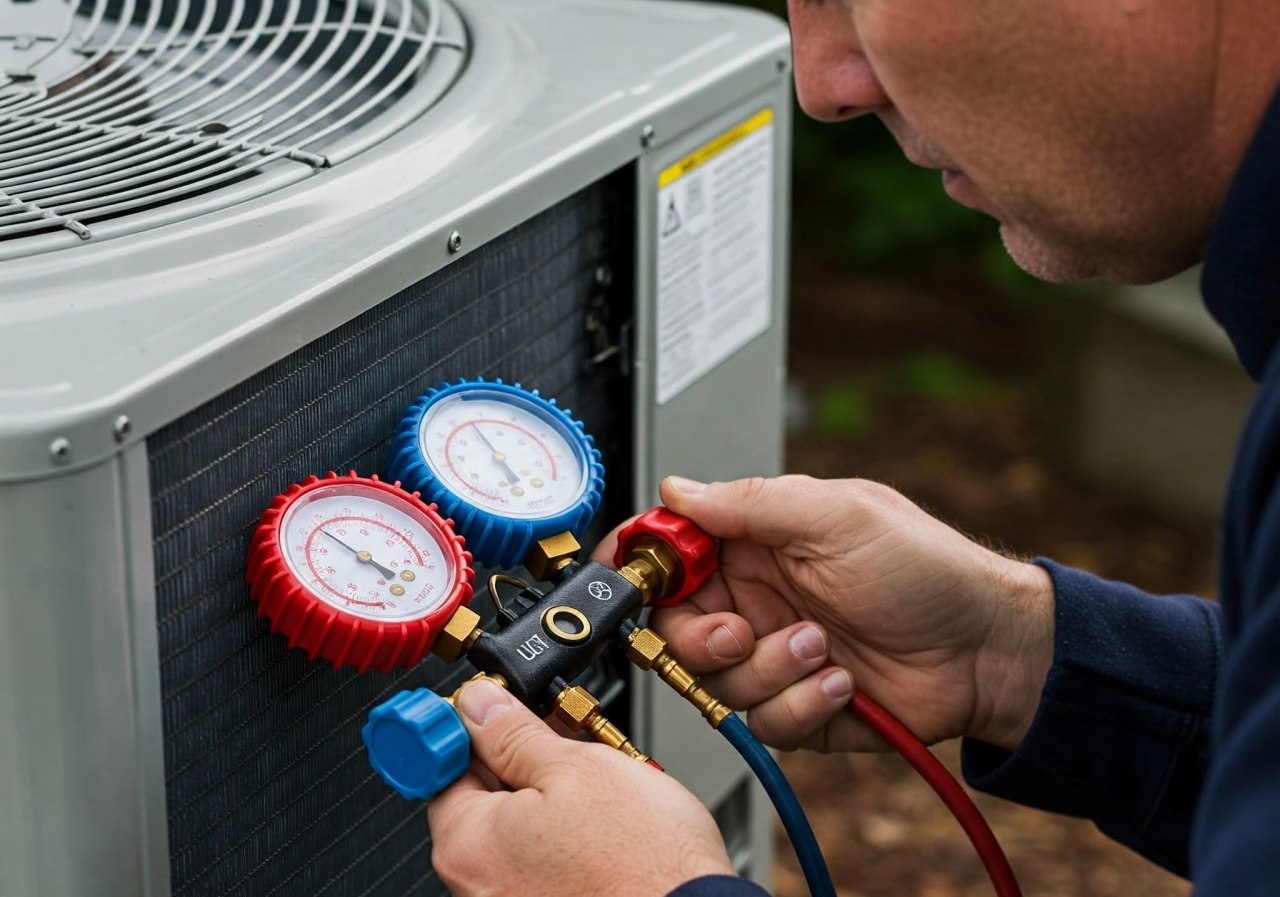
If your AC is running but not blowing cold air, it could be because of a coolant leak. A technician will likely show up with a canister of refrigerant to recharge the system and get to work on repairing the leak.
COMMON TYPES OF REFRIGERANTS IN FLORIDA
If your AC unit was made before 2010, it likely uses Freon (R-22). If it was made after then, it probably uses Puron (R410-A) and if you installed a new AC in the past few years, it may use R32 or 454-B (the so-called “next-gen” refrigerants).
|
REFRIGERANT TYPE |
ODOR DESCRIPTION |
REFRIGERANT HEALTH RISKS |
ENVIRONMENTAL IMPACT |
|---|---|---|---|
|
R-22 Freon |
Faintly sweet, slightly chloroform-like. |
Can cause dizziness, nausea, and asphyxiation in high concentrations; prolonged exposure may affect the liver and nervous system. |
Ozone-depleting; high global warming potential (GWP) |
|
R-410A Puron |
Faint or odorless. |
Can cause dizziness, headaches, and irregular heartbeat in high concentrations; frostbite upon direct skin contact. |
No ozone depletion; high global warming potential (GWP). |
|
R-32 |
Slightly sweet, mild ether-like odor. |
Can cause dizziness, asphyxiation in enclosed spaces, and mild skin/eye irritation. |
No ozone depletion; lower GWP compared to R-410A. |
|
R-454B “Puron Advance” |
Slightly sweet, mild chemical smell. |
Low acute toxicity; high concentrations may cause dizziness, asphyxiation, or skin/eye irritation. |
No ozone depletion; much lower GWP than R-410A. |
ENVIRONMENTAL CONCERNS
The main reason for the changes in refrigerants used in air conditioning systems over the years is the environmental concerns—namely the effect of the release of refrigerants on the ozone layer and greenhouse gases.
The latest refrigerants promoted by the federal government are considered more environmentally friendly than their predecessors and are known as low global warming potential (“low-GWP”) blends.

We can expect modern AC units to increasingly adopt these new refrigerants. However, at present, they are far less common than Puron-based systems in the US.
POTENTIAL HEALTH IMPACTS OF REFRIGERANT LEAKS
Refrigerant must be handled only by licensed professionals as it requires specialized tools and knowledge and there are risks associated with it.
DIY repairs of a refrigerant leak are, therefore, not an option. You’ll need a professional and, if you suspect a leak, emergency AC repairs may be required.
Exposure to large amounts of refrigerant, especially in confined spaces or poorly ventilated areas, can cause acute health issues, such as:
- Dizziness, headaches, nausea, coughing, and shortness of breath if inhaled
- Symptoms like frostbite and irritation with skin contact
- Severe eye irritation, burns or vision impairment
- Irregular heartbeat if inhaled in confined spaces

Long-term health issues related to refrigerant exposure are rare but may include liver and kidney damage, increased risk of cancer, memory problems, tremors or cognitive impairment.
DOES REFRIGERANT HAVE ANY ODOR?
Most AC refrigerants are colorless and almost odorless in small amounts and, therefore, difficult to detect.
When the system is working properly, you should never be able to detect any AC refrigerant smell.
However, some people describe faint chemical odors associated with some of the various refrigerant types. A freon odor of nail polish remover or car exhaust sells is sometimes observed, for instance.

Generally speaking, refrigerant odors are subtle enough to go completely unnoticed, meaning that homeowners should be on the lookout for other signs of leaks…
HOW TO DETECT A REFRIGERANT LEAK?
If refrigerant doesn’t smell and is colorless, how do you detect a leak?
The pivotal role that refrigerant plays in the cooling process in your home means that there are several other signs you can look out for if there is an AC leak.
Leaking refrigerant quickly results in a lack of cooling capacity and the following tell-tale signs:
- A lack of cooling in the home with the AC blowing air that is too warm through the ductwork and the vents.
- Hissing, gurgling or bubbling sounds coming from the AC unit may indicate that pressurized refrigerant is escaping through a crack or hole in the system.
- Ice formation on the evaporator coils of the unit inside the home due to moisture in the inside air freezing on contact.
- Reduced cooling efficiency with longer run times, high humidity, and an uncomfortable indoor environment.
- Oily residues because many refrigerants are mixed with lubricating oil inside the system.
- Increased energy bills due to longer run times and the system working harder to keep up.
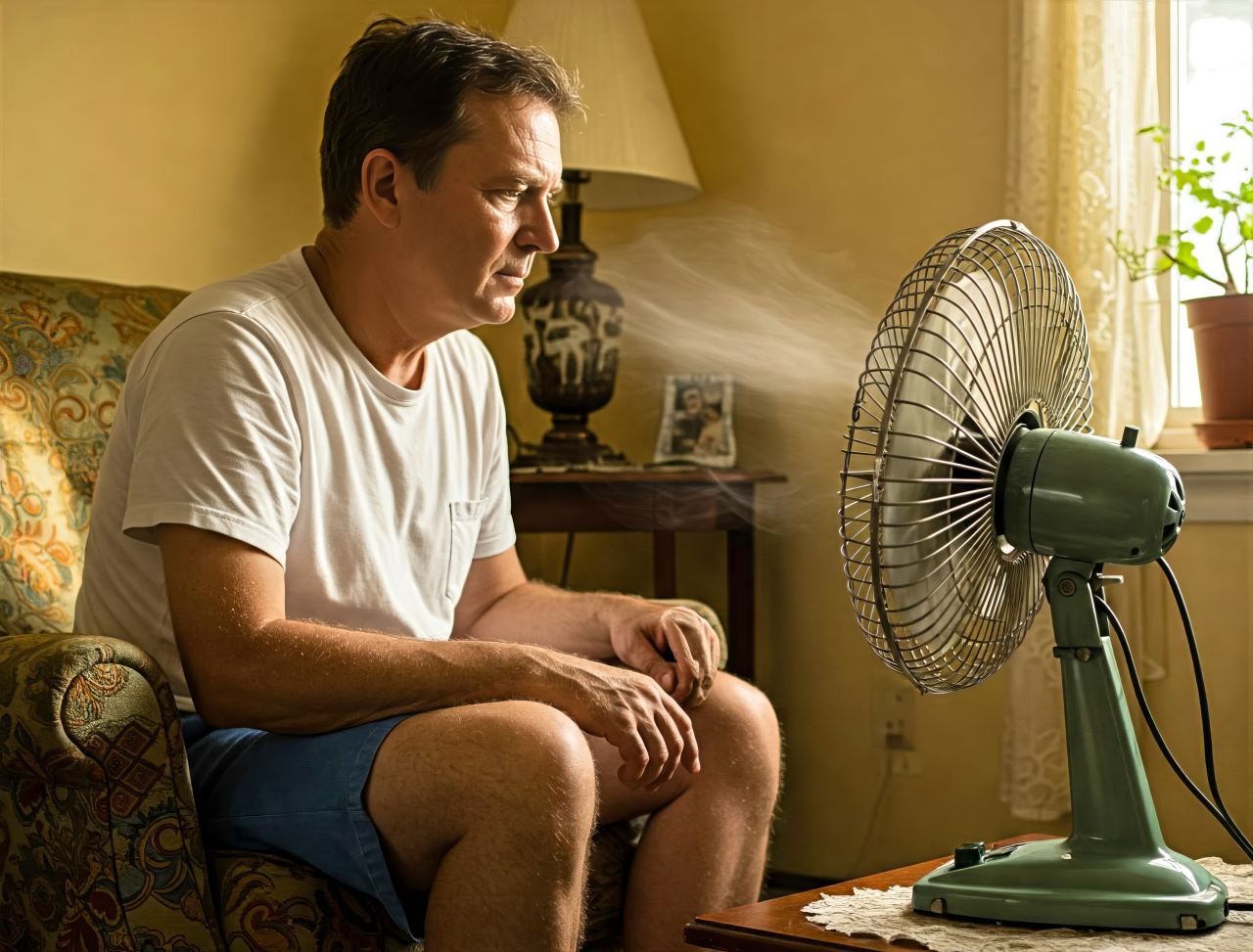
Refrigerant detection early can avoid costly AC repairs and ensure your system operates safely and effectively. Regular AC tune-ups will also help prevent leaks and detect AC leak signs early.
WHAT TO DO IF YOU SUSPECT A REFRIGERANT LEAK
Florida homeowners invest a lot in AC systems, so it pays to know how to look after them.
If you suspect a leak, turn off your air conditioning and call a licensed HVAC technician to conduct a test for leaks. Do not attempt repairs yourself but observe any AC issues that cause you to suspect a leak and inform the professional.
If refrigerant is low, the AC professional should first try to locate the source of the leak—and fix it—before recharging the system.
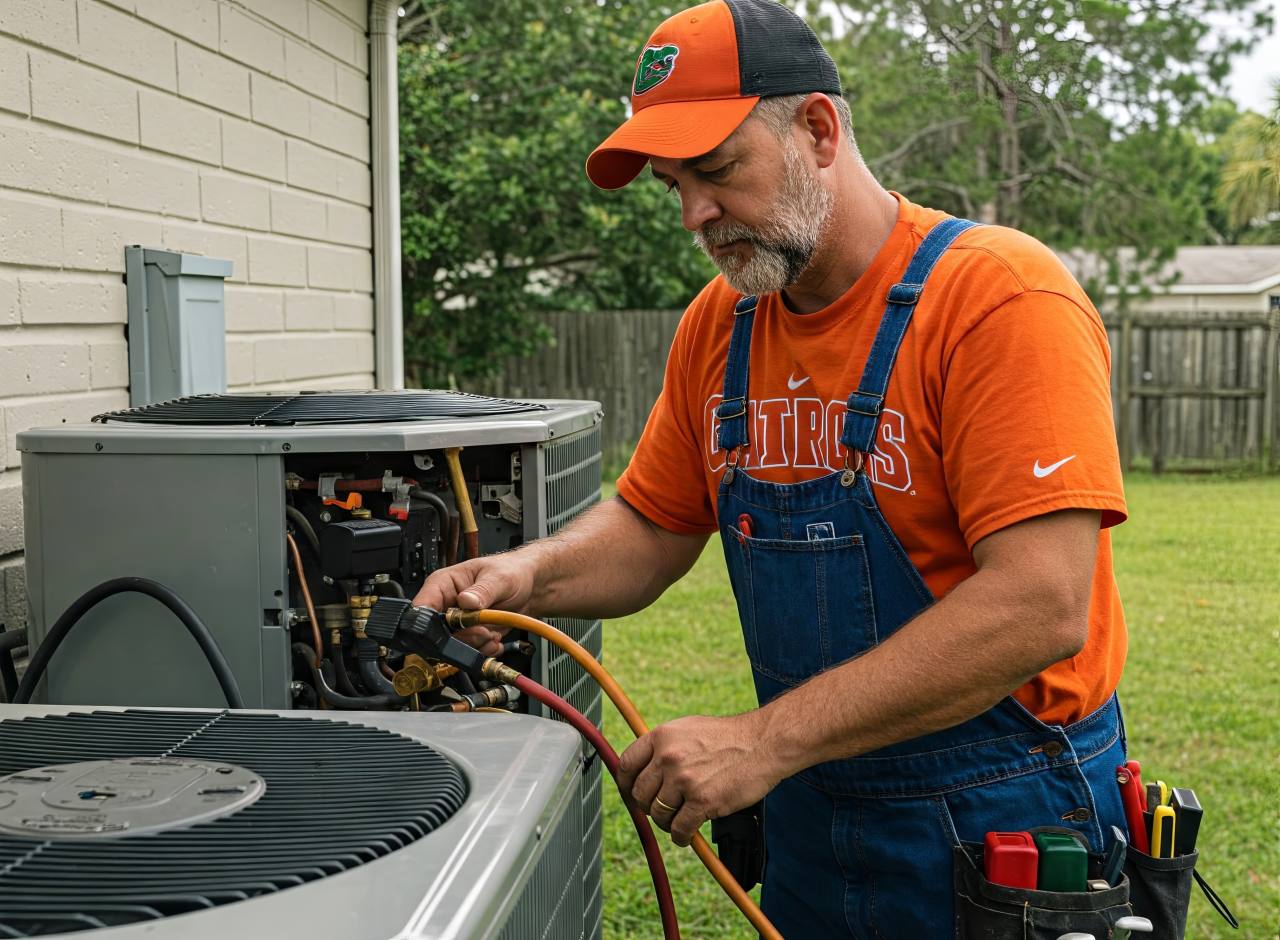
REFRIGERANT ODORS VS OTHER COMMON AC SMELLS
A range of other common AC sounds and smells can affect air conditioning.
For instance, if your AC unit sounds like running water, it could be caused by the drip pan on the inside unit starting to overflow, the condensate line being blocked or the evaporator coil freezing over.
Common AC odors are musty smells, rotten egg smells, fish-like smells, or burning smells, all of which point to different problems not involving AC refrigerant.

Again, most of these issues should be checked out by an AC professional.
FAQs
You may hear the term “low refrigerant charge” when troubleshooting AC problems or getting your AC system serviced. This simply means that your unit is low on coolant, which can point to a deeper issue, such as a cracked coil and a coolant leak. If you encounter this, book immediate AC repairs as refrigerant can be hazardous.
Common causes of refrigerant leaks are corrosion of the coils over time, loose fittings, physical damage, wear and tear over time or poor installation.
Yes, exposure to high concentrations of refrigerant can cause headaches, dizziness, nausea, and other health issues.
If your AC system has a serious refrigerant leak, you may be better off sleeping elsewhere until it’s fixed but minor leaks with adequate ventilation should be no major cause for concern. The leak still needs fixing though!
Most AC systems are designed to work with one type of refrigerant only. Changes to the designs of cooling systems (operating pressures) mean that new coolants can be used with new systems but you should consult the manual or an AC professional to understand the refrigerant in your system.
In automobiles, coolant usually refers to the substance used to prevent the engine from overheating. Air conditioning coolant removes heat from the air, resulting in cooler air temperatures.
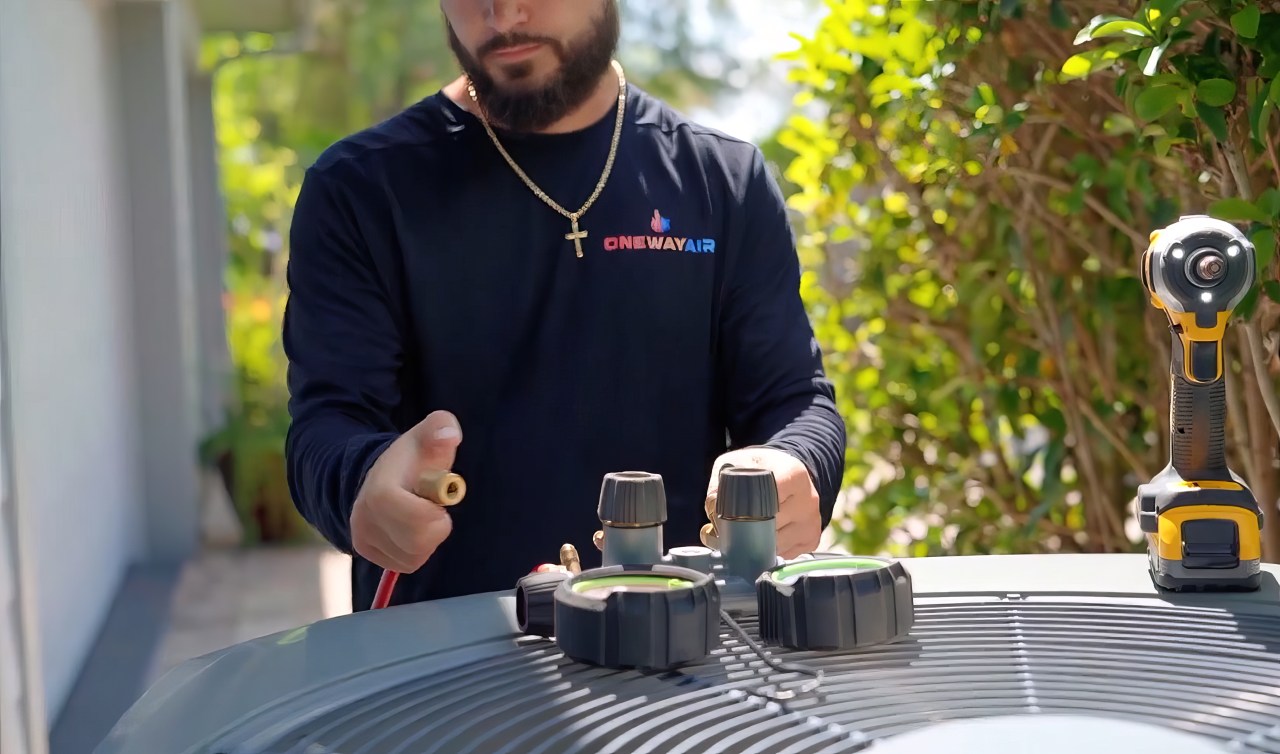
PREVENT AND FIX REFRIGERANT LEAKS IN YOUR HOME
Remember, regular AC Maintenance (ideally before the summer season) can catch minor leaks early and prevent major issues down the line.
Contact an AC professional at One Way Air for an inspection of your HVAC system and help with detecting and repairing leaks.

